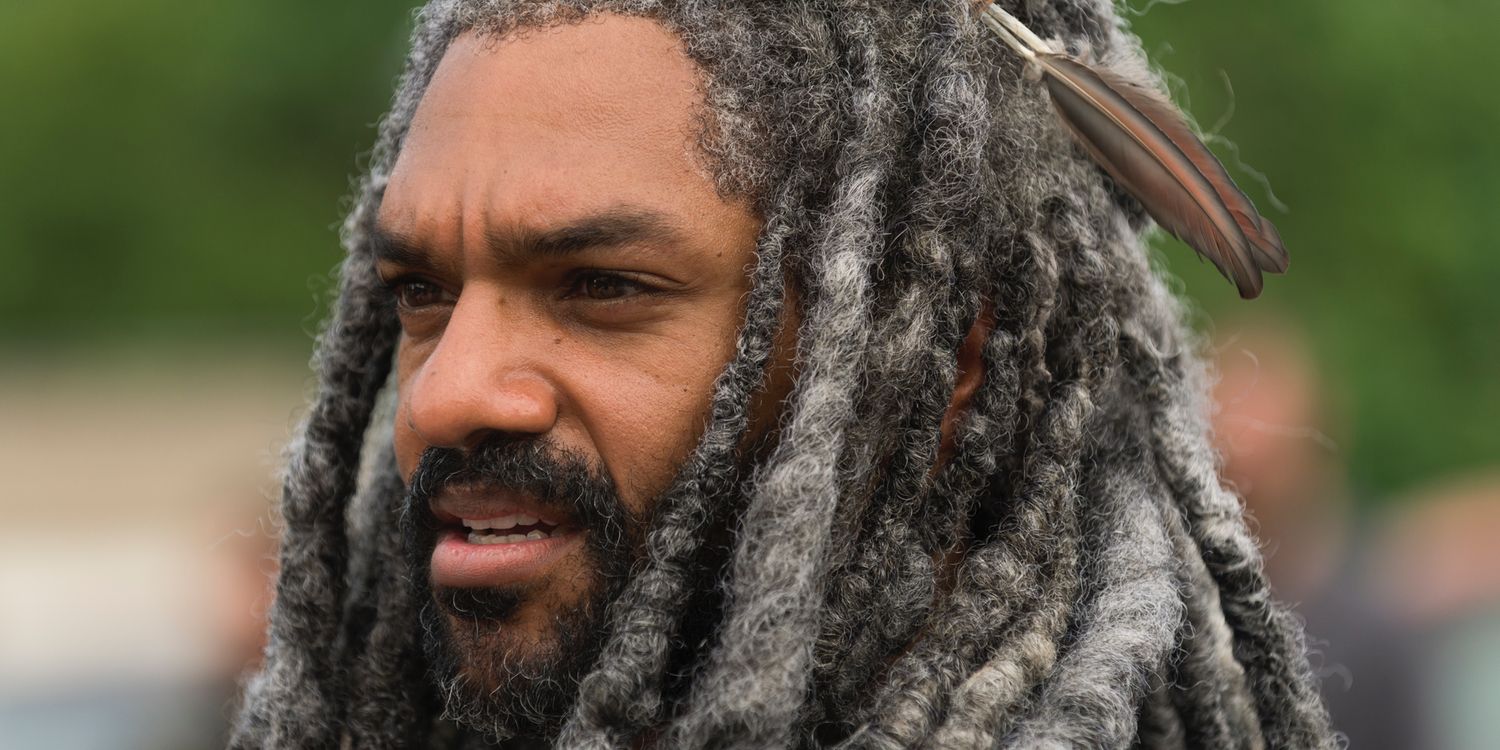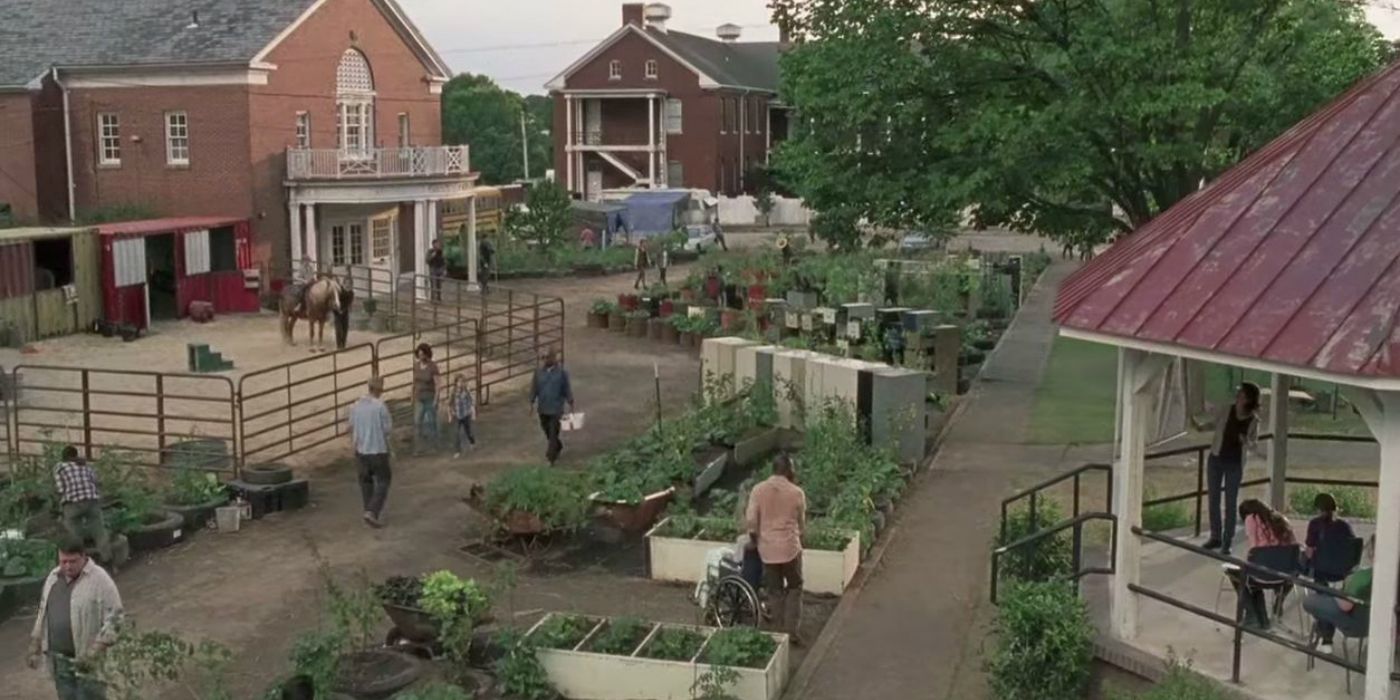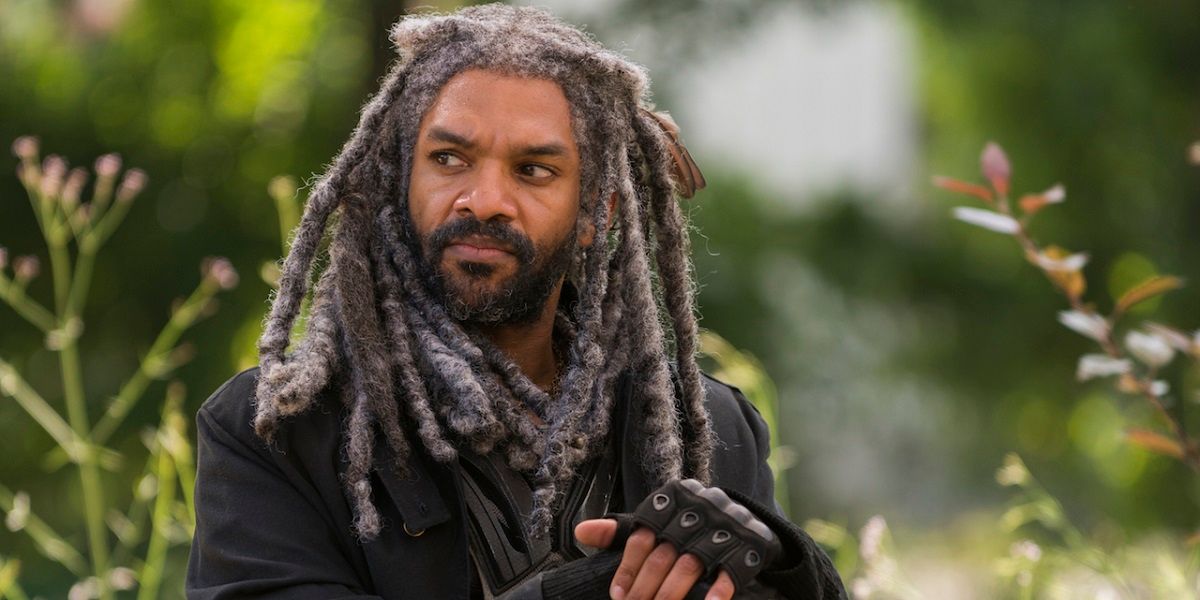[This article contains SPOILERS for The Walking Dead season 7, episode 2.]
-
After last week's absolutely brutal premiere, in which The Walking Dead killed not one but two major characters, this week's episode, 'The Well', offers a respite from the violence and grief that's become the show's calling card. Never once does it reference the horrors Rick and the survivors (as well viewers) were made to witness last week; instead, depicting an entirely different world, one whose outlook was not wholly governed by fear or cruelty, but hope and aspiration.
If The Walking Dead season 7 premiere was intended to show a leader and his people at their lowest, then introducing Ezekiel and The Kingdom only an episode later is meant to soothe those wounds. Life in this world need not be so grim, even when facing terrible odds, and The Kingdom's purpose at this point in the story is to reinstate a belief that a good life is still possible -- though only if those in charge can make the tough but necessary decisions. The world will never be the same as it was before the apocalypse, but that doesn't make living in it any less worthwhile. As Ezekiel so wisely explains, "Embrace the contradiction."
A Feudal Kingdom
For many seasons, The Walking Dead was a show about wanderers. Rick and those who followed him simply moved from one location to the next, fortifying and resupplying as needed. The prison was by far their best attempt at settling down, but even that was eventually destroyed. And by what? Through conflict with other people, specifically The Governor and Woodbury. Since that point, Rick and his fellow survivors have only dealt with conflict after conflict, managing to survive only to face yet another threat from another group. And though the survivors always come out on top, it often comes at a terrible cost.
Now look at The Kingdom, an established community which has seemingly existed since soon after the world fell apart. How has it survived? Not by chance, that's for certain, but through the hard work of its people to maintain three necessary elements: food, shelter, and most importantly, safety. (Having a tiger around doesn't hurt either.) The Kingdom has the land to farm and feed its people, it has the buildings to house them, and it has the means to protect itself -- either through its high fences and weapons, or by a willingness to deal and compromise.
The Kingdom's arrangement with The Saviors is by no means ideal, but it has allowed their settlement to continue thriving. And it's not as if using goods as a form of payment, either for protection or to appease a neighboring force, is anything new. It's called feudalism, and it's a social system which became a bedrock of civilization. By modern standards, feudalism isn't perfect, but when trying to rebuild civilization, you have to start somewhere. The Kingdom has incorporated some of the ways a feudal society functions, even down to their ruler and his sense of order. "Drink from the well, replenish the well." The residents of The Kingdom work to serve their community and their King, and Ezekiel in turn keeps his people safe by appeasing a neighboring "King" who would do them harm. Not a perfect system, but so far a sustainable one.
Uneasy Lies The Head That Wears The Crown
If introducing settlements like The Kingdom as well as The Hilltop brings a society to The Walking Dead that in some ways mimics feudalism, then it's also a society built by strong personalities. Negan is a force unto himself, a leader who rules through fear and domination. Gregory of The Hilltop is a weak leader, caving to Negan and his Saviors immediately. Ezekiel is also shown to be subservient to Negan, but judging by the interaction between him and The Saviors in this episode, it's at least a more respectful relationship. Plus, Ezekiel has his people's best interest in mind, doing what best serves them even if it may hurt his own pride. And then there's Rick, who openly and repeatedly defies Negan, only to have his people ruthlessly punished for it.
The losses Rick and the survivors suffered last week were a reminder that they -- and specifically Rick -- cannot continue acting as they have; eventually, an unstoppable force meets an immovable object. And in this case, Rick met Negan. If Rick wants Alexandria to outlast and thrive as The Kingdom has, then he needs to change his perspective, no longer thinking of his value as just an individual but as a figurehead. Ezekiel, for all his theatricality, is a wise leader who is an inspirational figure for his people. He understands that to fight The Saviors would mean great losses and no guaranteed victory. It's a hard choice, but for now it's the right one.
Rick is certainly going to have a different point of view, wanting to exact revenge. But to be the leader that Alexandria needs right now, he'll need to temper that desire with caution. Like Ezekiel, Rick must look at the larger picture of what can be maintained and fostered while being in thrall to Negan. Through ties with The Hilltop, Alexandria can strike up an alliance with The Kingdom, leading to a coalition that may actually have a chance of defeating Negan and his Saviors. These sorts of revolutions aren't won alone, and they require leaders who'll make the difficult and not always pleasant choices.
Conclusion
Whenever we rejoin Rick and those who bore witness to Negan's cruelty, they'll still be feeling quite hopeless. Meeting Ezekiel and observing life in The Kingdom, however, could return some of that lost hope. It's unclear just how soon that will happen on The Walking Dead, but learning of other communities also under Negan's thumb should only strengthen Rick's resolve. There will be a bond between those Negan is oppressing, out of which alliances can be formed, changing The Walking Dead from a show about wandering survivors to one of a fledgling civilization.
-
The Walking Dead continues next Sunday with ‘The Cell’ @9pm on AMC.



